Saturday, 15 November 2014
Postcard from Palestine 15 - postscript
Hebden Bridge's Ron Taylor is a regular visitor to Palestine, part of an international movement of supporters.
I am now back in the UK and this is probably my last postcard from Palestine. This postscript concerns my last day with Taáyush, the Arab-Jewish Partnership. The day was spent in the Palestinian village of Umm Al Khair (Mother of Goodness) in the South Hebron Hills. Our purpose was to help with the rebuilding of part of the village after the demolitions by the Israeli military a few days earlier.
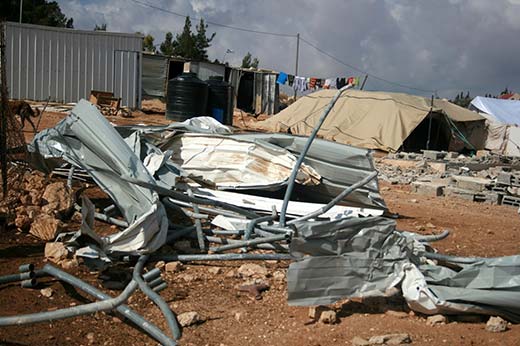
The remains of one home demolished by the Israeli army
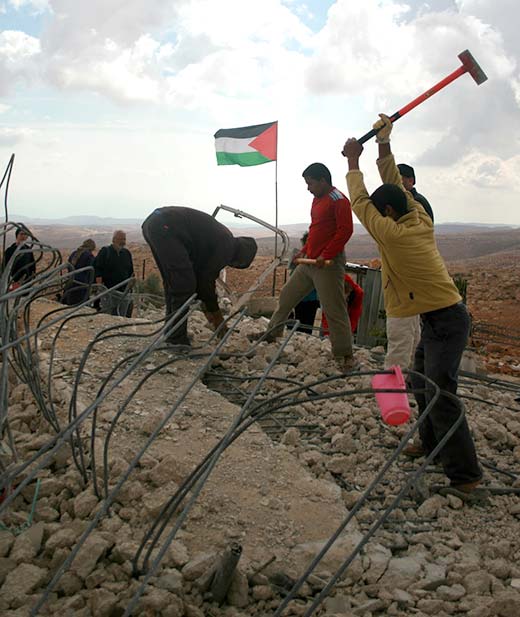
Clearing rubble from demolished home to make way for emergency tent
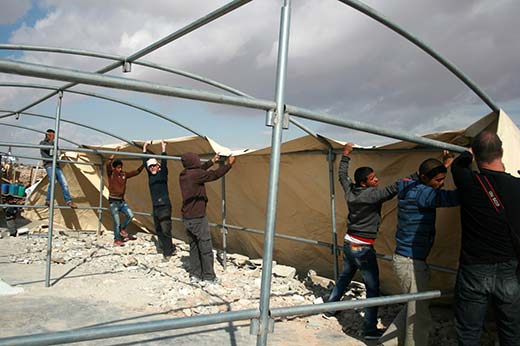
Israelis and Palestinians working together - erecting emergency shelter for families made homeless by the Israeli army.
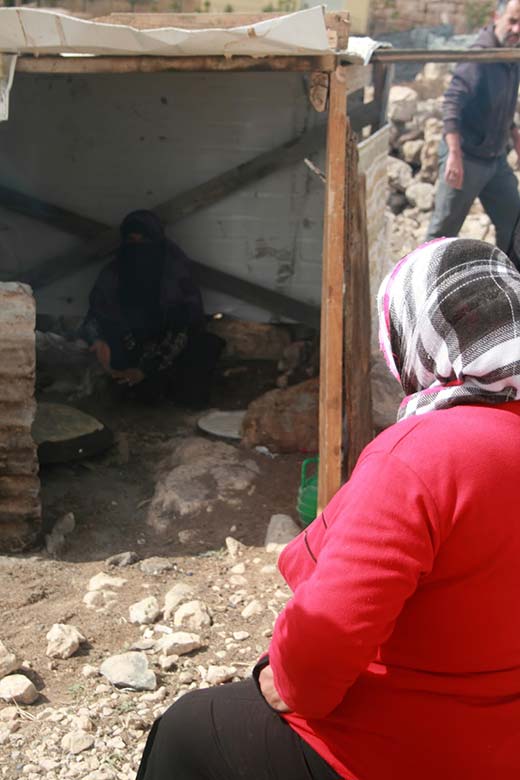
The oven destroyed by the army has been rebuilt.

Below is the same site a few days later when the Israelis destroyed it again.
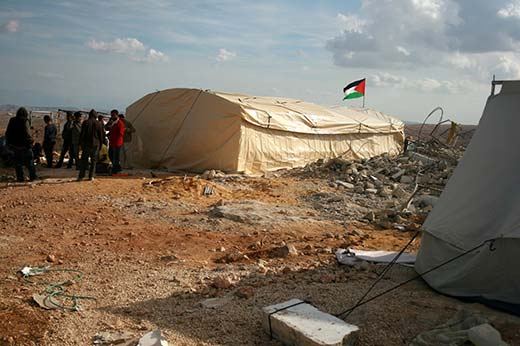
A completed tent.
Thursday, 30 October 2014
Postcard from Palestine 15 - ethnic cleansing and demolition of Palestinan communities continues
Hebden Bridge's Ron Taylor is a regular visitor to Palestine, part of an international movement of supporters.
Three days ago, the Israeli military machine swung into action. Soldiers with guns and bulldozers came early to Umm al Khair, a tiny Palestinian herding community in the South Hebron Hills. By the end of their visit, the ethnic-cleansers of the Israel Defense Forces had demolished six houses and a traditional oven (taboun).
A total of 31 persons, some of the most vulnerable people in the West Bank, were left homeless, including 12 children. During the demolitions, two Israeli activists from Ta'ayush (the group I am active with) were detained by the police and an international volunteer arrested.
Below is a video made shortly after the demolitions.
On Saturday I will be with Ta'ayush and other activists to help rebuild some of the structures which were destroyed.
It is not the first time Umm al Khair has been attacked in this way - nor will it be the last. Such events take place in many of the communities in this area and is a feature of Israel's apartheid system which is designed to make life so difficult for rural Palestinians that they will leave. Empty land will then be available for Jewish colonisation.
Umm al Khair clings on to life in the shadow of the Jewish settlement of Carmel without mains water and electricity in constant fear of expulsion. Life for the settlers could not be more different. Houses that would not look out of place in English suburbia stand in rows and more are under construction. Electricity and water infrastructure is clearly evident. Nearby stand the enormous sheds of the settlers' dairy farm which supplies Israel with milk products.
Carmel is now an 'legal' settlement. In other words, it has the approval of the Israeli government having started life as an illegal outpost which should have been removed by the military. But it is rare that an outpost is demolished - that treatment is reserved for Palestinian villages.
A few miles away to the east are several outposts standing on hilltops. These are home to some of the most violent racist settlers in the West Bank. Three weeks ago a group of perhaps eight of these criminals (from Mitzpe Yair - see previous 'Postcards' - links below) attacked a contingent of four Ta'ayuush activists (thankfully I was not one of them) as we accompanied Palestinians to their land; they are too fearful of settler attacks to go alone. None were badly hurt but one, well-known to these people, was targeted. He was thumped, kicked,dragged along the ground and one settler threatened to remove his eyes. None of the attackers were arrested - this is what passes for normality here. All this happened as a soldier looked on.
The following Saturday five activists were arrested (4 Israelis, one Palestinian) for entering a closed military zone in the same place. There is no equal treatment here.
Below is footage of part of the attack
Finally and on a brighter note last Saturday I took this photograph below.

We had been accompanying two shepherds from the village of Um al Amad from early morning. On our return to the village we were greeted by the village elder, a cheery affable man. As we waited for transport to our next destination he suddenly grabbed the hand of Guy, one of our leading activists, and lead him away; he proudly wanted to show the new house that is being built for a family member. An Israeli Jew and a Muslim Palestinian hand-in-hand. Ta'ayush is Arabic for living together - it was truly a ta'ayush moment.
Ron Taylor
See also
Postcard from Palestine 14 3 Ta'ayush and the Palestinian people in the South Hebron Hills are under attack. (Feb 2014)
Postcard from Palestine 13 3 Broken Cameras, 4 CMZs (Dec 2013)
Postcard from Palestine 12 Another day with Ta'ayush (Nov 2013)
Postcard from Palestine 11 A Day with Ta'ayush (Oct 2013)
Postcard from Palestine 10 - Leaving Bethlehem (Jan 2013)
HebWeb Forum - Postcards from Palestine
Postcard from Palestine 9 - Destroying Palestine Bit by Bit
Postcard from Palestine 8 - Trees destroyed in revenge
Postcard from Palestine 7 - Normal life in Palestine
Postcard from Palestine 6 -Beer festival and closed military zones (2 November 2012)
Postcard from Palestine 5 - April 2012
Postcard from Palestine 4 - attacked by settlers
Postcard from Palestine 3 - detained by the Israeli army (16 March 2012)
Postcard from Palestine 2 (19 Feb 2012)
HebWeb Forum: Postcard from Palestine
Postcard from Palestine 1 (8 Feb 2012)
HebWeb News - Hebden Bridge Old Gits support Palestinian farmers

